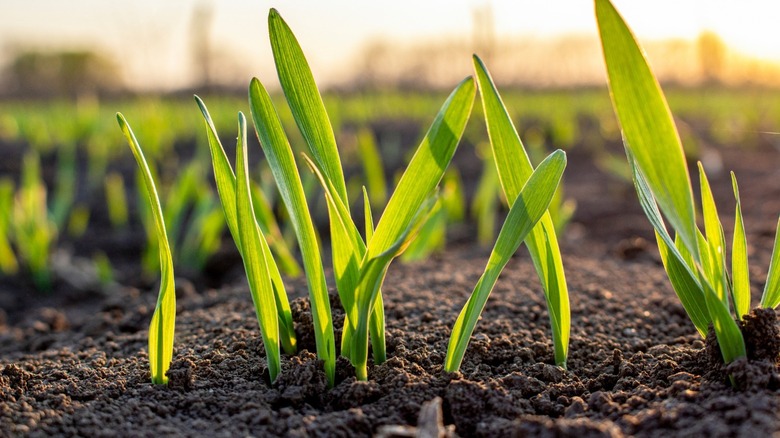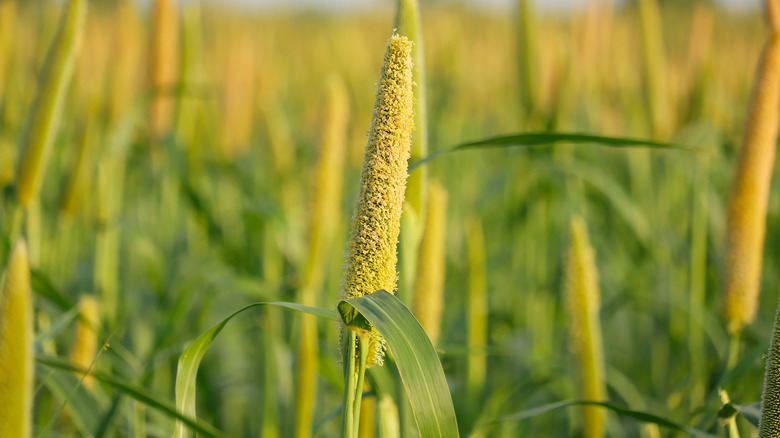Could 'Orphan Crops' Be The Solution To The Global Food Shortage?
The factors contributing to the global food crisis just keep adding up. As United Nations Secretary-General António Guterres remarked last week, the number of "severely food insecure people" has more than doubled since the onset of the COVID-19 pandemic, clocking in at nearly 300 million. With mass shortages of farming necessities like fertilizer, the President of the World Farmers' Organization told National Geographic that he's "not sure it's possible any more to avoid a food crisis." The world is still recovering from the supply chain issues brought on by the swell in demand during the pandemic, and the war in Ukraine is affecting the food supply in the U.S. and beyond. Now, farmers no longer have access to the Russian-exported nitrogen fertilizers that once accounted for 20% of the global reserve, per NatGeo. Tack on issues like climate change and rising inflation, and you have what looks like an insurmountable problem.
This week, Time published a list of five possible ways to stop the crisis from getting worse, which includes providing emergency services to those in need, "[maintaining] the open flows of trade on which every nation depends for their food supplies," and turning to renewable energy in order to prioritize growing crops for food instead of biofuel. Food Navigator also reports that some are looking to "orphan crops" — which fall outside of the world's high-demand crops, but still provide tons of nutrients — to save the day.
Rice is thin on the ground, but millet and buckwheat abound
Rice, maize, wheat, and soy beans are the world's most popular crops, according to Food Navigator. More specifically, they account for half of "plant-based human foods." But in a food crisis, high demand does not equal high supply. Food Navigator cites Dan Saladino, author of "Eating to Extinction: The World's Rarest Foods and Why We Need to Save Them," on an oft-overlooked class of crops that are allegedly "nutritional powerhouses packed with sustainability credentials."
In a webinar hosted by the Forgotten Food Crops Society and summarized by Food Navigator, Saladino echoed a solution outlined in the aforementioned Time article, stating "One way to create more resilience in the system is to deglobalize parts of the global food system." For him, this means turning to things like millet, which "disappeared because of its laborious processing method," but could see a resurgence with new harvesting technology. The same goes for buckwheat, sorghum, and amaranth, which are grains some people may have never even heard of before.
If you're feeling hopeless about the food crisis, it might be worth it to look into the topics presented in Saladino's book and spread the gospel of underutilized crops.

